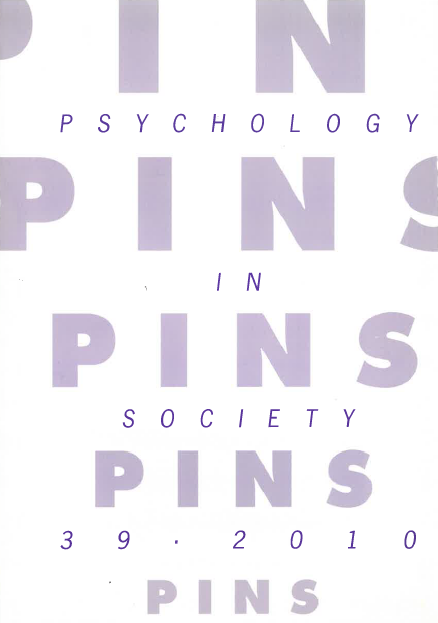EDITORIAL
DOI:
https://doi.org/10.17159//2309-8708/2010/n39a1Abstract
Mostly people marvel at the wonder and benefits of the Internet, and mostly it seems we are right to do so. We also bemoan the problems created by the Internet, which range from right-wing hate forums, to the inane mountains of available information, to the obsessive checking of emails and other social network “postings”, to the ubiquity of the new verb – “just google it”! And yet intellectual life is so imbricated with the Internet that we forget how recent its founding is, and how intellectual communities formed and functioned before the Internet. For much of its nearly 30 year history PINS has functioned as a kind of virtual intellectual community, firstly for people who wanted to be associated with a psychology that was actively anti-apartheid, and secondly for people who want to maintain a constructive social critique of psychological theory and practice in post-apartheid society.
Downloads
Downloads
Published
How to Cite
Issue
Section
License
This journal is an open access journal, and the authors' and journal should be properly acknowledged, when works are cited.
Authors may use the publishers version for teaching purposes, in books, theses, dissertations, conferences and conference papers.
A copy of the authors’ publishers version may also be hosted on the following websites:
- Non-commercial personal homepage or blog.
- Institutional webpage.
- Authors Institutional Repository.
The following notice should accompany such a posting on the website: “This is an electronic version of an article published in PINS, Volume XXX, number XXX, pages XXX–XXX”, DOI. Authors should also supply a hyperlink to the original paper or indicate where the original paper (http://www.journals.ac.za/index.php/pins) may be found.
Authors publishers version, affiliated with the Stellenbosch University will be automatically deposited in the University’s’ Institutional Repository SUNScholar.
Articles as a whole, may not be re-published with another journal.
The copyright of the article(s) lies with the author(s).
The copyright of the journal lies with PINS-psychology in Society.
The following license applies:
Attribution CC BY-NC-ND 4.0 - https://creativecommons.org/licenses/by-nc-nd/4.0/

